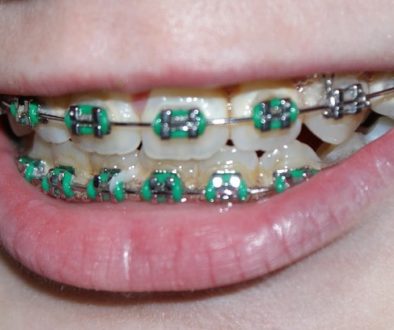Can Osteoporosis Medications Cause Dental Problems?
 There is a certain class of osteoporosis medications known as bisphosphonates that have been linked with a rare but very serious side effect known as osteonecrosis of the jaw. To understand why this happens, you first need to know a little about how bones work and what these medications do.
There is a certain class of osteoporosis medications known as bisphosphonates that have been linked with a rare but very serious side effect known as osteonecrosis of the jaw. To understand why this happens, you first need to know a little about how bones work and what these medications do.
How Bones Work
Most people think of bones as a solid, unliving object that creates a frame for your body. In actuality this couldn’t be further from the truth. They are constantly creating and breaking down new bone cells. Your bones contain specific cells known as osteoblasts and osteoclasts. Osteoblasts create new bone while osteoclasts break it down. For most healthy people these cells break down and create bone at approximately the same rate so that your bones stay at a constant density. For people with osteoporosis, their body resorbs bone at a faster rate than it replaces it. Over time this causes their bones to become less dense and more prone to fractures. This most commonly occurs in women after menopause.
Bisphosphonates
Bisphosphonates (also known as antiresorptive agents) work by slowing down the process of resorption and equalizing the ratio again. The main goal with them is to keep any further bone loss from happening. Some common bisphosphonate medications include Actonel, Atelvia, Boniva, Didronel, and Fosamax which are all taken by mouth or Boniva IV, Prolia, or Reclast which are given to patients in an IV.
Some patients also receive these medications when being treated for certain types of cancer including multiple myeloma, prostate, bone, and metastatic form of cancer. Most cases of osteonecrosis develop in these cancer patients because they receive high doses of the IV form.
What Does Any Of This Have To Do With Dentistry?
Some people who have taken bisphosphonate medications develop a condition known as osteonecrosis of the jaw after surgical dental treatment. Examples of surgical dental treatment include tooth extractions (most commonly), periodontal surgery, or endodontic surgery. Osteonecrosis of the jaw occurs because the bone isn’t able to heal correctly as a result of the bisphosphonate medications. Bone healing is a complicated process that involves both the osteoclasts and osteoblasts. As we talked about before, the bisphosphonate medications interfere with osteoclasts ability to function. Osteonecrosis usually starts as a small area that won’t heal after surgery and oftentimes progresses to destruction of a large part of the bone. In some cases you can end up with a jaw fracture or losing a large portion of the jawbone.
Now it’s important to understand that not everyone who takes bisphosphonate medications and has dental surgery will develop osteonecrosis. It’s actually a pretty rare complication, but such a severe one that we try to avoid any chance of it happening. The biggest risk factors for developing osteonecrosis include using the IV versions of these medications (about 90% of cases), taking them for an extended period of time (usually 5 years or longer) and longer and more traumatic surgical treatments.
What Can You Do If You’ve Taken Bisphosphonates Or Are About To Start?
Don’t stop taking your osteoporosis medications. The benefits of taking them usually outweigh the risks.
Keep regular dental appointments with your dentist so that you can address any problems before they become a big problem leading to tooth loss.
Maintain a good diet and good oral hygiene.
Try to quit smoking and limit alcohol use. Both of these are risk factors.
If you do have oral surgery, it is usually recommended to stop the bisphosphonate medications during the healing period.
If you know you’re going to start receiving bisphosphonates, especially the IV version, get a full dental check-up and have any work done before starting.
How Do You Know If You’ve Developed Osteonecrosis Of The Jaw?
Osteonecrosis of the jaw usually develops shortly after a surgical procedure. The area typically doesn’t heal and you have exposed bone. You can have swelling of the gum tissue around the area as well as develop infections and have drainage from the area. There aren’t any tests for it but most surgeons will diagnose osteonecrosis if the area hasn’t healed within 8 weeks. Most people have pain associated with the area but in rare cases it is just a non-healing area with no pain.
How Is It Treated?
Most cases of osteonecrosis of the jaw are treated without surgery. Your surgeon will usually prescribe antibiotics, special mouthrinses, and medications to manage the pain. Usually it runs it’s course over several months and resolves on it’s own. The amount of bone destruction is different in each case.



